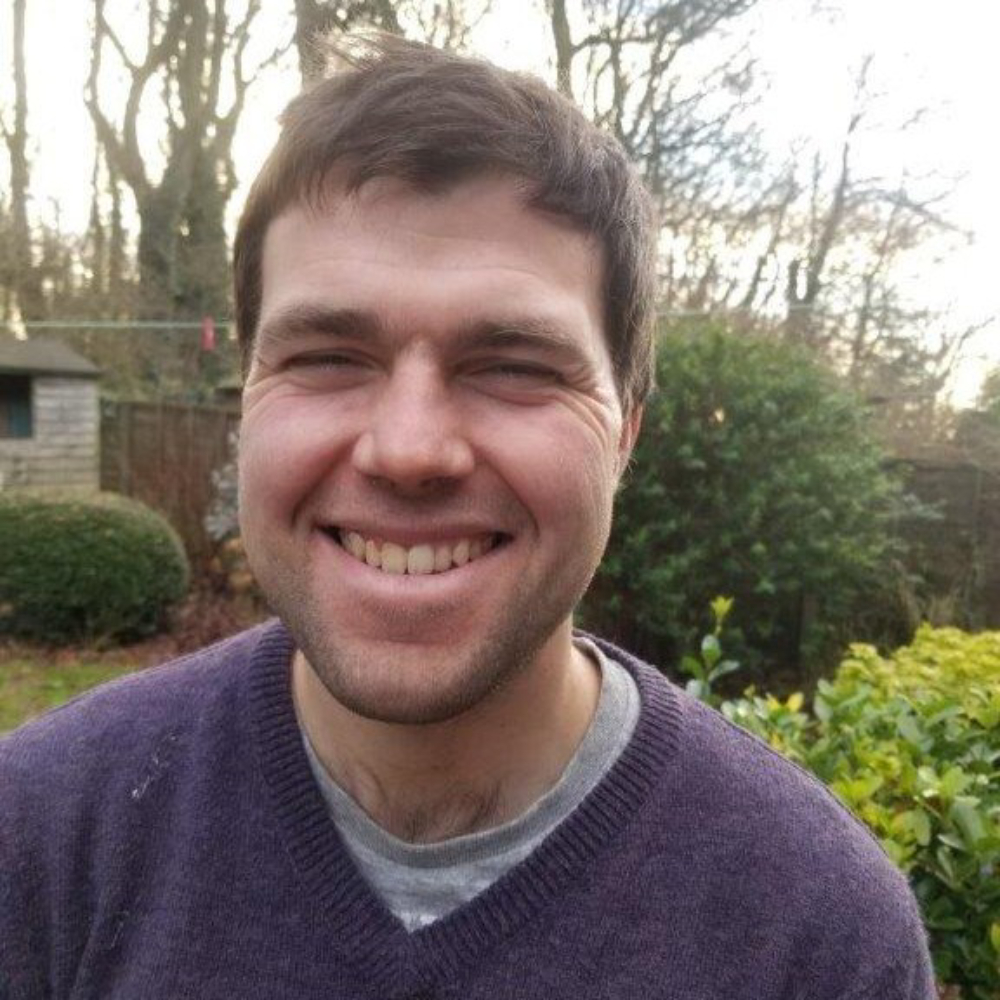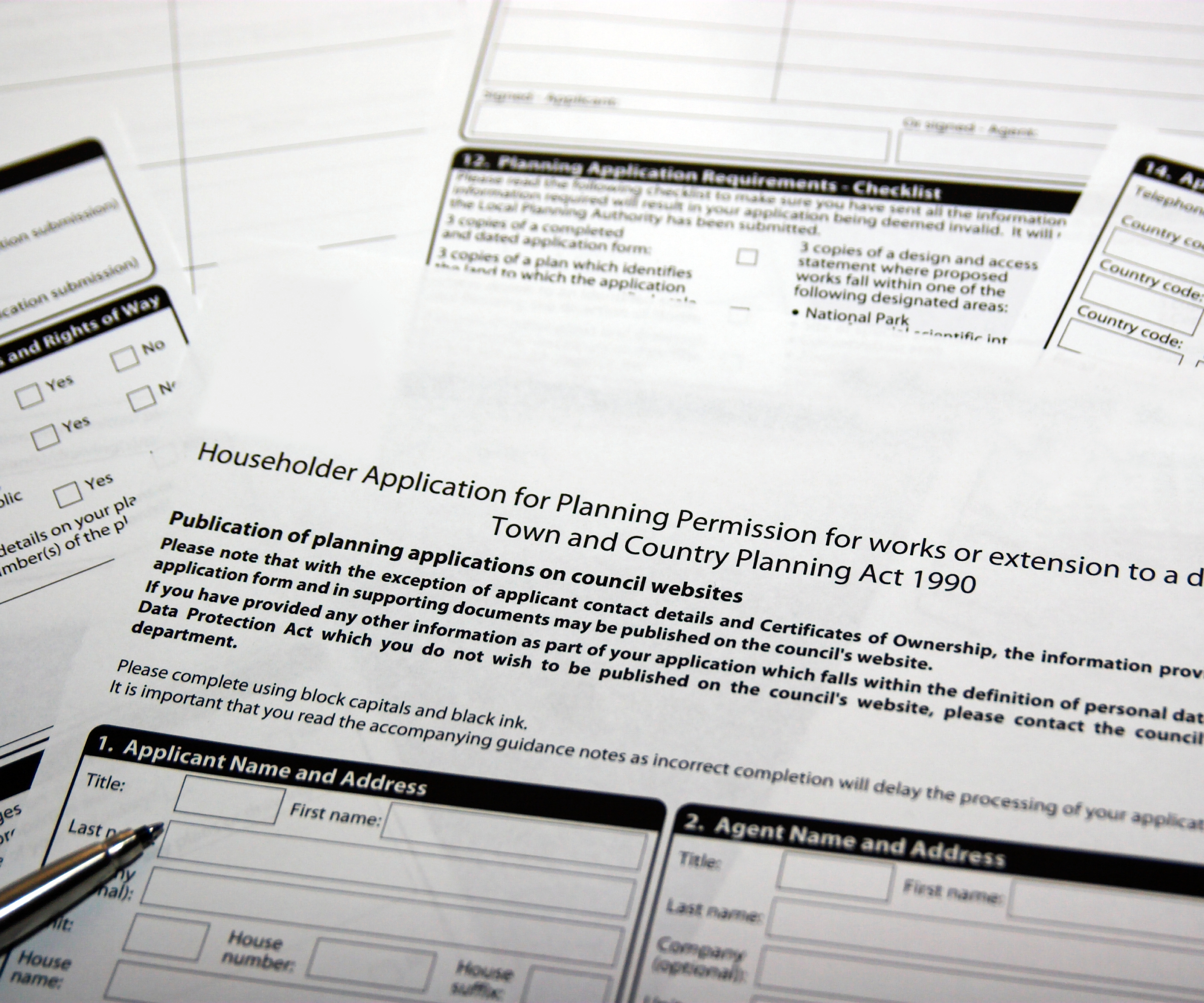I'm a town planner and here are my five tips for planning applications
The planning process can sometimes be hampered by delays and difficulties. Town planner and planning consultant, Glen Baker-Adams offers his top five tips for an easier application

Bring your dream home to life with expert advice, how to guides and design inspiration. Sign up for our newsletter and get two free tickets to a Homebuilding & Renovating Show near you.
You are now subscribed
Your newsletter sign-up was successful
If you're about to embark on a self-build or extension that needs planning permission, you'll likely be looking for planning application tips. With stories regarding long delays and refusals often hitting the headlines, making sure the process runs as smoothly as possible is at the top of most people's agendas.
And while it's easy to listen to hearsay about how to get your application right, we've asked expert, Glen Baker-Adams, town planner and planning consultant at Grounded Planning and HiiGuru, for his top recommendations.
For those of you not familiar with the profession, planning consultants are professionals who you can hire to either simply offer advice in the early stages, or to act as your representative and deal with all stages of your planning application.
Having previously used one myself, I think they are worth every penny – especially if you have an unusual or historical build planned.

Glen is a Development Management Team Leader in town planning, runs his own planning consultancy and also provides his services via the HiiGuru online platform. Facilitating effective town and country planning is his purpose and he has experience in all manner of planning applications.
Planning application tips
1. Do your research
Although it can be easy to view your planning application as a single entity that will be judged solely on the merits of its design, construction and size, the reality is actually quite different. The individual elements matter, but your application is considered as part of a much bigger picture.
"One of the first lessons you're taught as an officer is that each application should be judged on its own merits - but always in line with the overall council plan," says Glen.
So, when it comes to research - you need to appreciate why homes will either receive or be rejected when it comes to planning, which is where your understanding of the National Planning Policy Framework (NPPF) comes in.
Bring your dream home to life with expert advice, how to guides and design inspiration. Sign up for our newsletter and get two free tickets to a Homebuilding & Renovating Show near you.
"The NPPF is basically the Bible in terms of what applications might be approved," says Glen. " So make sure you understand what it’s trying to say in terms of what might be acceptable wherever you live in the UK. There's lots of topics on there to help guide you in terms of what the Councils need to look at, what the government needs to look at and any planning reforms ahead.
"Then," continues Glen, "as well as the NPPF, you have your own local planning framework which you can usually find on your council’s website. While some may be quite old, or in the process of being updated, most of the fundamentals will be the same. Speak to the local policy team to get help and advice on whether your ideas will suit the bigger picture both locally and nationally," suggests Glen.
"If you can demonstrate your application is meeting social, economic and environmental issues, then generally speaking you should have given yourself a good chance. Because ultimately, planners are required by law to respond to the development plan because it is a piece of legislation."
2. Adopt an early engagement approach
As part of that research process, next on Glen's list is the recommendation of early engagement with your local council.
"Early engagement is fundamental in my experience," says Glen. "So whether you do a formal pre application, or whether you just make some initial enquiries to the council yourself, or via a consultant, I think that first step in terms of engaging with the council is essential whether you’re asking their opinions, or just doing that research."
Opting for a more formal pre-application process can however be more beneficial in terms of reducing time in the long-run, suggests Glen.
"Through the formal pre app process I think you’re more likely to get the council's attention because you're paying for that service," says Glen. "I know some councils don't charge, but I'd say 80-90% do, which means there's the expectation that they should be acting quickly."

"You will also have a named officer dealing with your case so you can call them up and contact them," adds Glen. "Although a formal pre-app or early engagement can sound a bit laborious and it’s another task to add to the list, it can really make a difference," says Glen, "because conversely, if you don't do it, you can end up making false assumptions."
Early engagement with your neighbours is also recommended, as even though you may still end up with differences in opinion, being able to demonstrate openness is seen as a positive.
"If you can put in your statements that you have had the early engagement, that does help," says Glen. "Some people will have concerns that aren't legitimate, such as claiming the house prices might go down - which isn’t a valid planning consideration - but to be able to show you have tried to deal with their concerns will be beneficial."
3. Have respect for all parties involved
"Planners are easy targets in terms of garnering a reputation of saying no to things, but they're only saying no for a reason," says Glen. "Refusal is actually a dirty word in planning. Basically, in my experience, we do want to approve all that we can. But, we have to make sure schemes are compliant. It’s good to trust that process and have faith that we are doing things for good reasons.
"However, emotions can play a big part in planning on the homeowner’s side," recognises Glen, "so it's always advisable to try and take a step back and remember to respect those involved in the process - whether you’re submitting an application, objecting or supporting a scheme.
"As a planning officer, part of our role is to mediate, to make sure that everyone has their say. It’s not just the planning officer making the decision. Whether it's highways, local residents or the environmental experts it's not just one person making that final decision.
"Don't see them as being an enemy," advises Glen. "Look at what they’ve said, talk with them, make sure that they understand what's going on, and engage with them. Appreciate that there are times where officers may be slow, but again, that's only because they're pressured themselves. They'll have a number of inquiries to deal with, not just your case. It's not the only one on their desk, so talk to them and understand their predicaments. Even ask them if there's anything you can do to help that process. If they need to approach someone, ask them if you can do that for them.
"Ultimately planning is about ensuring developments are well designed, safe and there are no issues once built, so it's actually quite serious," explains Glen. "We’re dealing with highways and flooding, and these things can also be a matter of life and death."
4. Be accurate in your application
When it comes to making your application, although the planning application form itself needs to be completed well, what really matters are the final plans, the drawings and the documents. Glen's top tip is as expected – accuracy.
"Be accurate. Don’t try and put the wrong measurements in in the hope it won’t be noticed. Someone will see it – even if the planning officer doesn’t. There's lots of people looking at a scheme," says Glen, "especially when it comes to the design review, and some of these can really be thorough in terms of checking inaccuracies.
"Obviously, having a good architect will help with this," says Glen, "because they will make sure that everything is correct."

5. Hire local architects
When it comes to deciding how to choose an architect, consider local professionals advises Glen.
"Your local architects are probably the best people to choose, because they obviously work in the area. They already have relationships with the planning officers," says Glen. "They understand what’s been approved before and they can maybe use that to their advantage in terms of what they're drawing or designing for you.
"When it comes to the bigger proposals, you might want to reach out to bigger agencies," he acknowledges, "but I generally think local is best. But, it comes back again to research. See what architects are working well in a local area compared to others, look at their work and see what's been approved."
The Royal Institute of British Architects have a find an architect service that can match you to local architects whose work aligns with your proposals. I used the service to help find an architect when working on my own Grand Designs project and would definitely recommend it.
FAQs
When should I hire a planning consultant?
"If you’re doing anything from a single house onwards, a planning consultant is a valuable addition," says Glen. "Extensions, less so as I think you can get a lot of hints from council websites that often have design guides to help you figure out what they may, or may not pass.
"If you’re looking to undertake a full self-build, I think it's pretty useful to have an initial chat with a planning consultant - even if it's just a five minute conversation," he adds. "Most of them will have that conversation for free, but if you want a more guaranteed pass rate, and want to take some of the back and fore that inevitably happens during a planning application, a planning consultant can take that task on for you and just update you at regular intervals.
"They will also be able to converse as one professional to another, and do so without emotion," notes Glen, and of course, can help point out the planning permission mistakes to avoid.
How much time should I allow for the planning process?
Everyone wants to know how long does planning permission take, but it's not always a straightforward answer. However, Glen advises that, "councils are required to send off data to the government in terms of how many deadlines they have hit or missed. So find out what the average is and use this figure as your guide.
"Most councils will request an extension if it’s needed and it’s up to you to agree to that or not," says Glen, "but, remember that sanctions are brought against councils who don’t meet deadlines so the onus is on them to meet them, and they generally do want to meet them.
"Even if a delay is frustrating," says Glen, "try to remember it’s normally someone else involved in the consultation process that’s delaying the process, rather than the officer themselves."
Inspired to find out more? Find out how much does planning permission cost and how to get planning permission on a greenfield plot if you are looking outside of a built-up area.

Sarah is Homebuilding & Renovating’s Assistant Editor and joined the team in 2024. An established homes and interiors writer, Sarah has renovated and extended a number of properties, including a listing building and renovation project that featured on Grand Designs. Although she said she would never buy a listed property again, she has recently purchased a Grade II listed apartment. As it had already been professionally renovated, she has instead set her sights on tackling some changes to improve the building’s energy efficiency, as well as adding some personal touches to the interior.
